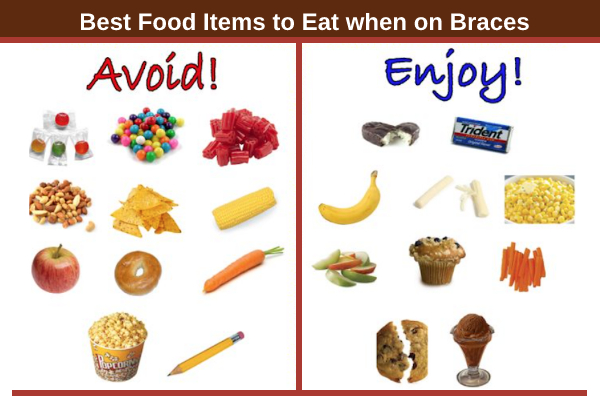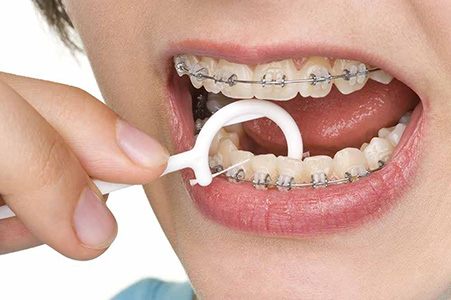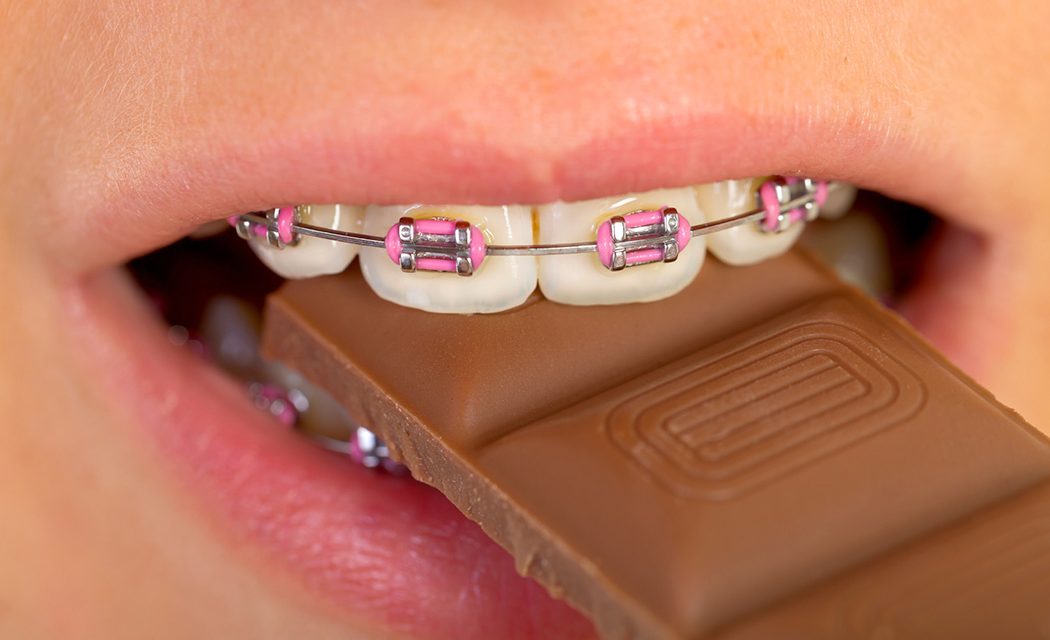Many parents in our Mississauga community who decide to get braces for their children (or themselves) have the impression that they need to go on a liquid or soft food diet afterwards in order to protect their braces. While it is ideal that you have softer foods during the first couple of days, once you get used to your braces, you can eat relatively normally.

Returning to a normal diet however does not mean that eating whatever you want is ideal. St. Lawrence Dentistry recommends some modifications to what you eat and how prepare certain foods while you are wearing braces. To help minimize breakages and keep your treatment time on track, here are some of the foods you should try to avoid until such time when the brackets, bands and wires are removed.
- Biting into whole hard fruits – Are an important part of a healthy diet, however, there are some fruits that are difficult to eat when you have braces on. Whole apples, uncut and unpeeled pears, and any other similar type of fruit should not be eaten whole – that means, don’t bite into these foods. If you want to enjoy these fruits, you may want to consider cutting them into bite sized pieces.
- Whole hard vegetables – just like fruits, vegetables that are hard to bite into should be avoided, or cut into manageable pieces. Some of the vegetables that are notorious for damaging braces due to people biting into them include raw carrots, pickles, celery, radish, and asparagus. If you want to eat these, cut them up into small pieces or cook them till they are tender and easier to bite into.
- Chewy Food – when you mention chewy foods, the first thing that may pop into your head is beef jerky. This is indeed a type of chewy food, and should be avoided when you are wearing braces. Chewing on bubblegum, gummi bears and worms (or any type of gummy candy), caramels, taffy, and toffee (or any kind of chewy candy), and tough cuts of meat should be avoided all together
- Anything hard and/or crunchy – this list can be quite long since there are quite a lot of hard and crunchy food choices that can damage your braces. These include pretzels, candy canes and other similar hard candies, chips, cookies, and nuts. Ice is also a culprit when it comes to hard and crunchy foods damaging braces. Other hard foods that you should also steer clear of include hard bread or crusty rolls (like French bread, bagels, and baguettes), hard chocolate, pizza crust, and seeds.
- Anything off the bone – it is also a good idea to avoid eating anything directly off the bone. If you want to eat chicken wings or ribs, remove the meat from the bone first before eating them. This will help you avoid breakage of brackets or braces – which could prolong your treatment time. It might be a good idea to steer clear of these if you cannot enjoy them off the bone, and choose other cuts of meat for the meantime.

These restrictions might make it seem like there is nothing more for you to eat, but in reality there is still a lot of choices out there that are safe for your braces. For example, in the fruit department, you can eat bananas, melons, grapes and berries easily. In the meat department, tender cuts of meat that are cut into small pieces can also go on your menu. Most candies however are off-limits, but you can snack on a soft piece of chocolate every now and then.
Just make sure that you choose your food wisely in order to prevent the need to go back to your orthodontist frequently for repairs to your damaged braces. In time, you will see and reap the benefits of sticking to a brace-friendly diet, and your treatment will progress faster, giving you better looking teeth in no time.

If you do find debris has gotten stuck in your braces and you can’t get it out, you can call St. Lawrence Dentistry and we can assist you. Of course, you can always contact your orthodontist as well. Please consider [trx_highlight type=”1″]St. Lawrence Dentistry[/trx_highlight] if you are looking for a new dentist in the Mississauga area. It would be our pleasure to serve you.
- St. Lawrence Dentistry Looks Forward To St. Patrick’s Day! - March 12, 2025
- Understanding Dental X-Rays and Radiation: What You Should Know - January 13, 2025
- Happy New Year from St. Lawrence Dentistry! - December 30, 2024










